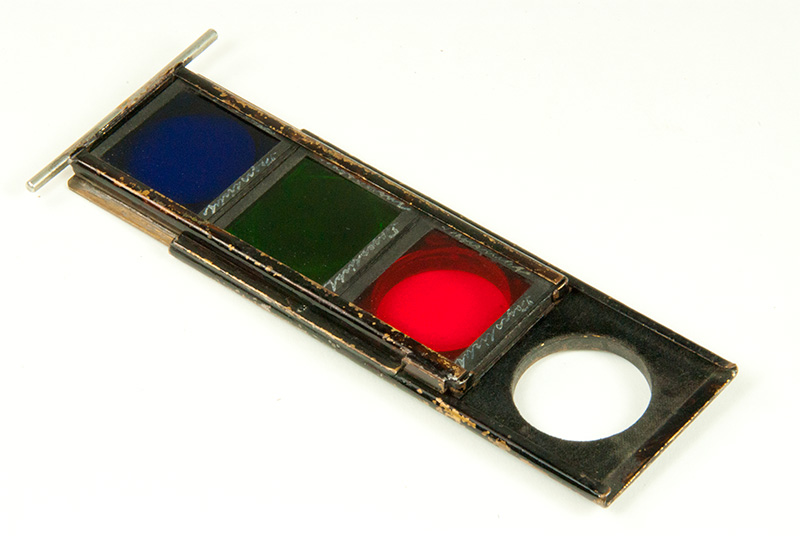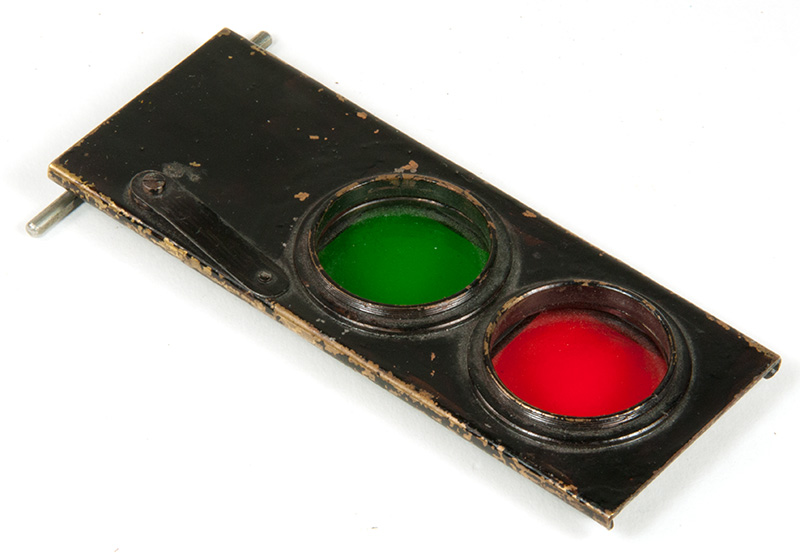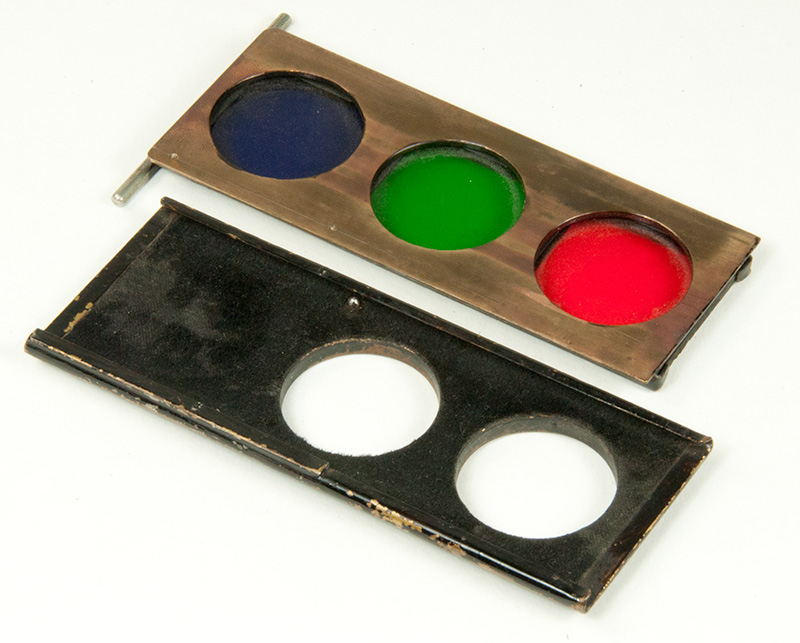
Sliding Tri-Color Filter Holder

The camera accessory shown on this page is a filter holder that was made for taking color separation photographs. The holder consists of two main parts, a fixed back plate that threads onto the front of a camera lens, and a sliding panel that holds red, green and blue color separation filters. In use, the holder would be mounted on a camera lens and an exposure made through the red filter. Next, the panel would be slid to place the green filter over the lens and a second separate exposure made. Finally, the blue filter would be slid into position and a third separate exposure made.
The word tageslicht, German for daylight is handwritten twice on each filter. Because these are daylight filters I believe the holder was intended to be used on a camera, not an enlarger. The filters are held in place by two bent metal tabs. If the filters were meant to be interchangeable, say with a set for artificial light, straightening and re-bending the tabs would quickly cause them to break. This tells me that the maker only intended the accessory to be used in daylight.

A lens can be mounted to the back plate in one of two positions. The major diameter of the lens mounting threads is 31.25mm so I assume the holder was made to mount on a lens with a 32mm filter thread. There is a possibility that the holder did not mount directly on a lens but was attached to an intermediate part of some sort.

During the 1930s, Leitz New York marketed a similar sliding tri-color filter holder, the OMAG for Leica cameras.
Because the filters have markings in German I presume the apparatus is of German origin. I would like to learn more about this accessory: what camera it was made for, what company made it and when. If you have information to share please contact Scott at: scott@vintagephoto.tv
Related Information

|
Page created August 9, 2010;
updated August 22, 2022 |